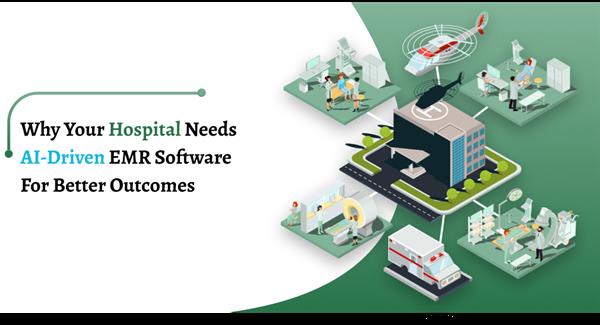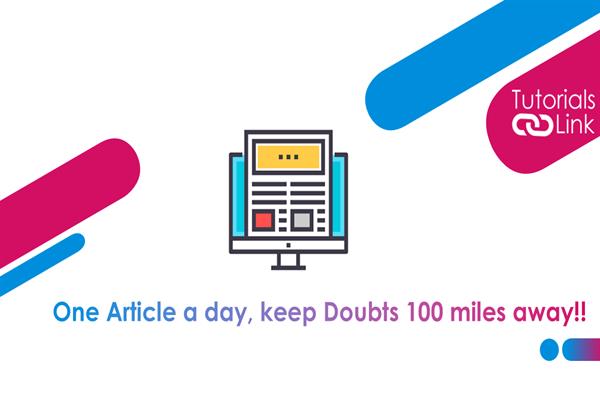Why Your Hospital Needs AI-Driven EMR Software for Better Outcomes

Introduction
Well, it is indeed AI EMR Software that our hospitals should be using for better health outcomes in today's competitive health care environment. Now many of these systems are moving beyond simple record keeping into application of artificial intelligence to analyze large data sets, generate predictions related to patient risk, and customize treatment plans. Giving timely information to front-line workers will help hospitals focus on patient safety, optimize resource use, and better patient care. Hence, it cannot be exaggerated enough to stress that the paradigm shift toward AI-based systems is paramount for hospitals keeping pace with medical innovation.
What is EMR Software?
EMR software works in a structured format of electronic medical records and is a digital system aimed at keeping patient records, treatment histories, medications, and medical data. EMR applications enable health care providers to instantly access and modify patient information, thus guaranteeing an accuracy and timeliness of medical decision making that is absent in conventional paper records.
AI-Powered EMR Software goes further by employing algorithms built with machine learning to mine patient data, identify patterns, and advise a doctor on diagnosis, treatment planning, and predictive analytics.
The Role of AI-Driven EMR Software in Healthcare
By automatically completing everyday chores and delivering live comments, AI has changed the way EMR systems operate. EMR systems depend greatly on artificial intelligence for these important tasks:
1. Automated Data Entry and Processing
By processing data from voice commands, medical records, and handwritten notes, artificial intelligence streamlines manually data input. This accelerates record-keeping and lowers human mistakes.
2. Enhanced Clinical Decision Support
EMR applications can study enormous volumes of patient information, spot risk factors, and based on live data, recommend individualized treatment plans.
3. Predictive Analytics for Patient Care
Physicians can proactively manage patient health by means of AI-driven EMR systems that forecast disease progression, readmission hazards, and treatment effectiveness.
4. Efficient Workflow Management
By letting hospitals operate more effectively, artificial intelligence streamlines administrative tasks such as compliance monitoring, billing, and appointment scheduling.
5. Interoperability and Seamless Data Exchange
Different healthcare providers can easily share patient data across several systems thanks to artificial intelligence-powered EMR software that helps to streamline communication between them.
Key Benefits of AI-Driven EMR Software
1. Better Patient Care and Safety
By making certain that physicians have precise and current medical information readily available, AI-driven EMR software helps to improve patient treatment. The mechanism can signal doctors to possible medication interactions, allergic reactions, and abnormal test findings.
2. Increased Efficiency and Productivity
By automating monotonous administrative chores via AI-enabled EMRs, time is liberated for the healthcare provider to devote himself to the care of the patient rather than mere paperwork.
3. Improved Decision-Making with Data Analytics
Artificial intelligence analysis of EMR software is used to compare patient history, treatment feedback, and diagnostic trends to provide insight for physicians to make informed medical decisions.
4. Reduced Costs and Improved Revenue Cycle Management
AI assures fast payments, reduces mistakes, and automates insurance claims, medical billing, and coding, therefore improving a hospital's financial condition.
5. Enhanced Compliance and Data Security
Protecting sensitive patient information from cyber threats and guaranteeing regulatory compliance, AI-assisted EMR systems provide sophisticated cybersecurity measures including encryption and multi-factor authentication.
AI-Driven EMR Software in Hospitals: A Game Changer
1. Customization for Different Specialties
Ensuring that every department has the most appropriate tools and capabilities, tailored AI-based EMR system hospital solutions meet the requirements of many disciplines including cardiology, oncology, and pediatrics.
2. Remote Patient Monitoring and Telemedicine Integration
Telemedicine's growth allows artificial intelligence-powered EMR software to monitor patient vitals and send real-time alerts to doctors using wearable devices and IoT-enabled medical tools.
3. AI Chatbots for Patient Engagement
Improving patient participation and satisfaction, AI-driven chatbots connected into EMR systems enable patients to schedule appointments, get medicine reminders, and access medical data.
The Future of AI-Driven EMR Software
EMR Software in India and worldwide are being driven by the rise of technologies such as AI, indicating an optimistic outlook for their future:
1. Natural Language Processing (NLP)
NLP-based EMR systems, powered by AI, will simplify the process of managing medical information and reduce the strain on doctors' hands.
2. Blockchain for Data Security
By combining artificial intelligence-driven EMR systems with blockchain technology, data integrity will be improved, guaranteeing tamper-proof medical records.
3. AI-Based Virtual Health Assistants
Advancing physician workload with real-time medical advice through artificial intelligence-powered virtual assistants will be made possible in future EMR software.
4. More Advanced Predictive Analytics
Better preventive care techniques will result from AI-powered EMR systems progressively more accurately predicting patient health outcomes.
5. Integration of VR and AR
Through EMR software, AR and VR technologies will support better surgical preparation, remote consultations, and medical instruction.
Choosing the Best AI-Driven EMR Software for Your Hospital
Keeping in mind the following factors while making the decision about an AI-based EMR system hospital solution:
- User-Friendly Interface – Check that the EMR software is easy to handle for both doctors and administrative staff alike.
- Customization and Scalability – The system should be adaptable to the various needs of the hospital and in eventuality accommodate its growth.
- Data Security and Compliance – To the purposes of this classification, look for EMR software that could conform with the provisions of HIPAA, GDPR, and other such data protection laws.
- Interoperability – Ensure complete integration with existing EHR Software, lab systems, and billing systems.
- AI and Automation Features – Look for AI-enable analytics, automated clerical workflows, and intelligent clinical decision support tools.
- Customer Support and Training – Smooth implementation would require reliable technical support, as well as on-the-job training.
Conclusion
For hospitals trying to improve patient care, simplify operations, and maximize healthcare management, the integration of AI-driven EMR software is now mandatory rather than optional. AI-powered EMR systems are transforming the way hospitals function from predictive analytics to workflow automation.
Investing in the top EMR software will guarantee that your hospital remains ahead in the competitive healthcare scene as the need for AI-powered EMR solutions keeps rising. Selecting an advanced EMR solution in India or anywhere will result in better patient outcomes, greater efficiency, and a more data-driven approach to healthcare whether you run a big hospital or small clinic.
It's now time to make the change and see unique improvements in patient treatment and operational effectiveness.





